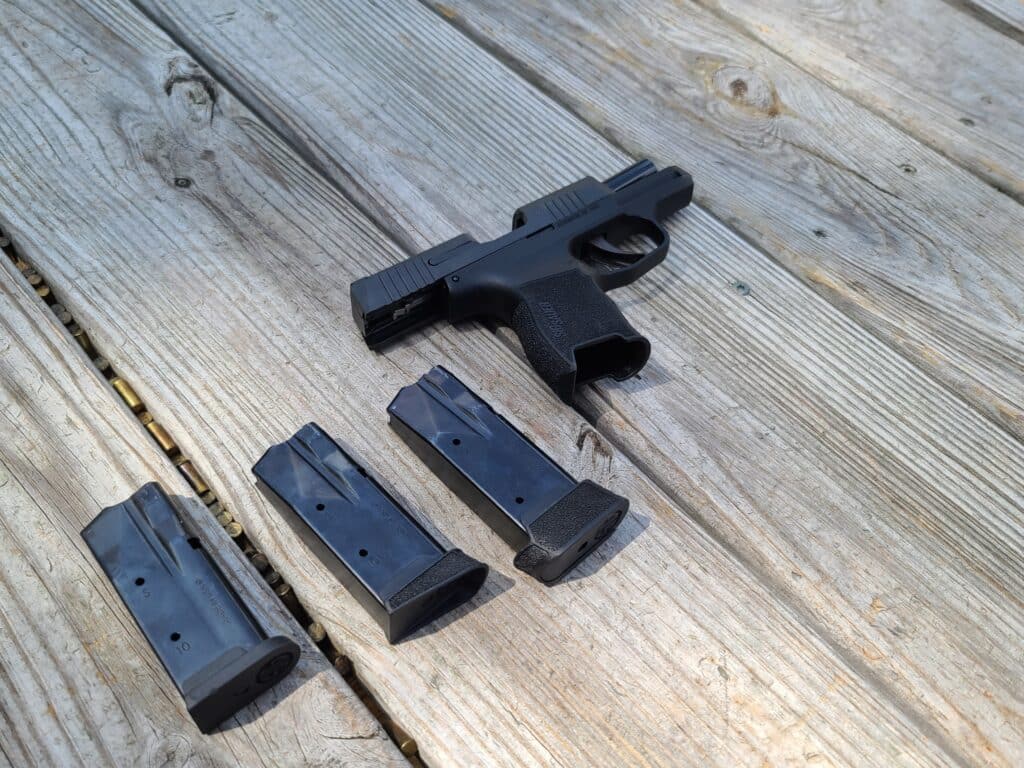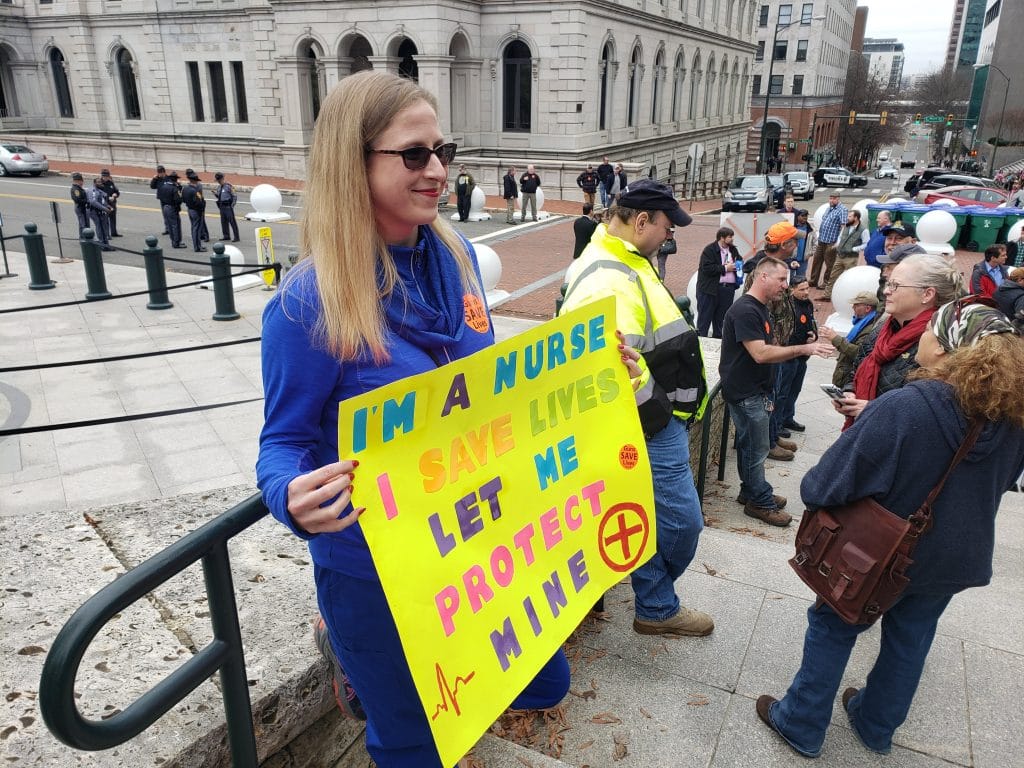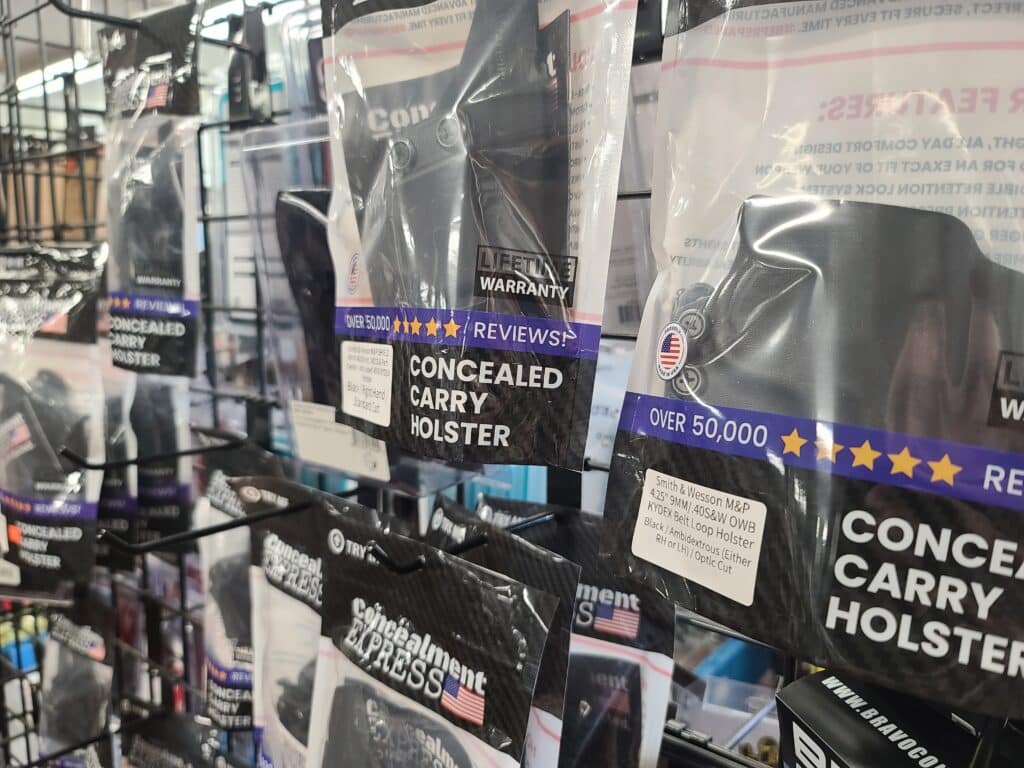This week, we got more insight into the new Merchant Category Code (MCC) change that’s coming to gun retailers nationwide.
While Visa, Mastercard, and American Express have agreed to adopt the new code, they seem less enthused about the plan to use that code to track and flag “suspicious” gun sales. Visa said it doesn’t have access to details on what people are buying at gun stores and doesn’t want access to that. The company said it wouldn’t use the code to prevent anyone from buying legal goods from gun dealers.
However, as I report below, the companies wouldn’t answer any direct questions. Visa, in particular, wouldn’t say why they decided to adopt the new MCC code if they don’t want to use it for the purpose advocates had it created for in the first place.
I also do a member-exclusive deep dive into exactly what the MCC change means for gun buyers, and what it doesn’t. I have a second member-exclusive piece for you guys too. This one lays out all of the insights the largest-ever survey of defensive gun uses has to offer.
New York’s gun-carry restrictions are back under legal scrutiny, Heller scores another win in DC, and Philadelphia gets one of its own on a new local gun law.
Plus, Georgetown Professor William English joins the podcast to discuss all the details of his expansive survey of American gun owners.

Credit Card Companies Won’t Respond to Questions on New Gun Store Code as Republicans Demand Answers
By Stephen Gutowski
The major credit card issuers are staying relatively quiet about their decision to adopt a specialized code for gun retailers.
Mastercard and American Express did not respond to multiple requests for comment on their decision-making process. Visa pointed The Reload to a recent blog post on the company’s website but did not answer any questions. The financial companies’ tight lips come as Republicans press for answers about how they plan to use the new data.
“Of course, there is no accepted, consistent, scientific, or legitimate way to determine from this data what is and what is not a ‘suspicious’ purchase,” 100 Republican congressmen said in a letter to Visa. “A gun control advocate could view any desire to own or obtain a firearm as per se suspicious.”

Analysis: What the New Credit Card Code for Gun Stores Means for Gun Buyers [Member Exclusive]
By Stephen Gutowski
The group that oversees credit card merchant codes agreed to create one for gun stores on Friday.
As first reported by Reuters, the International Organization for Standardization (ISO) created a specific code for gun stores. As is the case for most specialty stores, purchases made at gun stores will now be categorized in bank records. Visa, Master Card, and American Express announced they would start using the new code on Saturday, according to the Associate Press.
That doesn’t sound so controversial on the surface. After all, almost every industry has a merchant code. And it may end up not being very controversial if things don’t progress past this first step.
However, this is just the first step for the people behind this change. And it’s one that gun-control advocates have been pursuing for years. It’s part of a broader–if half-baked–attempt to surveil and scrutinize gun sales.
If you’re already a member, click here to read the rest. If not, consider joining today for exclusive access!

DC Repeals Gun-Carry Ammo Limit, Hands Heller Another Legal Win
By Jake Fogleman
For the second time in less than a year, the District of Columbia is amending its gun laws in the face of a legal challenge from Dick Heller.
The Chief of the D.C. Metropolitan Police Department on Wednesday adopted an emergency repeal of the city’s ban on carrying more than twice the number of rounds of ammunition a licensed individual’s gun can hold. He did so to head off a looming decision on a possible injunction under the new Bruen standard for reviewing gun cases, brought by Heller.
“On review of these developments, this regulation, its enforcement history, and in consideration of other regulations that govern concealed-carry licensees, the Chief has determined that emergency rulemaking action is prudent and necessary for the immediate preservation of the welfare of District residents and to enable the District to avoid accruing liability for attorney fees in legal challenges,” the city wrote in a legal filing notifying the court of the change.
Heller told The Reload he was unsurprised at the result of his challenge to the District’s ammunition limit.
Click here to read the full piece.

Analysis: How 50 Million Defensive Gun Uses Played Out According to a Massive Survey [Member Exclusive]
By Stephen Gutowski
The largest-ever scientific survey of gun owners found Americans used a gun in self-defense at least 1.67 million times per year. But the poll did a lot more than just count defensive uses; it also detailed how, when, and where they happened.
The National Firearms Survey, conducted by Georgetown University Professor William English, presented a ton of information on key questions surrounding guns in America. It found gun ownership is diversifying and gun carry is broadly popular. It found about a third of gun owners have owned an AR-15 or similar rifle and 50 percent have owned magazines holding more than ten rounds–key information for the legal battles over whether they can be banned.
And, of course, it also found a large number of American gun owners report using their guns to protect themselves. 31.1 percent of gun owners said they’d used a gun in self-defense. That equates to about 25.3 million Americans, according to English.
If you’re a Reload Member, click here to read the whole thing. If not, join today for exclusive access to this piece and hundreds more!
Podcast: Georgetown Professor on His Groundbreaking Survey of Gun Owners
By Stephen Gutowski
We took a look at the largest-ever survey of gun owners this week. I covered the topline results, and Contributing Writer Jake Fogleman wrote an analysis for members on what the survey showed about AR-15s in American society. We plan to write quite a bit more on the study because of how much high-quality data is in it.
That brings us to this week’s podcast. Georgetown Professor William English, who conducted the survey, joins us to discuss the details.
Plus, Jake and I talk about Smith & Wesson’s sales falling off a cliff last quarter and what it means for the company moving forward.
You can listen to the show on your favorite podcasting app or by clicking here. The full episode is also available on our YouTube channel. As always, the show is available for Reload Members on Sunday and everybody else on Monday.

Gun-Rights Groups Take Aim at New York’s Latest Carry Restrictions
By Jake Fogleman
Advocates are betting the Empire State’s new “sensitive places” restrictions will be sensitive to a legal challenge.
The Firearms Policy Coalition (FPC) and Second Amendment Foundation (SAF) filed suit against New York State Police Superintendent Kevin Bruen in federal court on Tuesday. The groups allege that enforcement of New York’s new carry restrictions amounts to “a de facto ban” on the right to bear arms in violation of recent Supreme Court precedent striking down the state’s previous carry law.
“S51001 replaced one unconstitutional licensing scheme with another, and worse, implemented expansive new criminal laws that ban carry of firearms in so-called ‘sensitive locations’ and presumptively on most property in the state—even for those who lawfully acquire and possess a license under the state’s onerous new licensing scheme,” the groups’ complaint reads.
Click here to continue reading.

Philly Court Upholds City’s Gun Building Ban
By Stephen Gutowski
Philadelphia’s total ban on private gun making will go into place.
That’s the result of a local judge’s decision not to issue a permanent injunction against it despite requests from a gun-rights group. Court of Common Please Judge Joshua H. Roberts said on Monday neither state law prohibiting local gun regulations, nor the Pennsylvania state constitution explicitly blocked the city’s move to ban unlicensed gun building.
“[T]he Court concludes that because the [state’s Uniform Firearms Act (UFA)] does not completely preempt the field of firearm regulation; and the local regulation does not seek to regulate an activity specified in the UFA, the Plaintiffs’ right to relief is not clear,” Judge Roberts wrote.
The case is part of two ongoing fights. The first is over efforts by gun-control advocates to restrict home gun building. The second is over whether localities should have the ability to pass gun restrictions that are more severe than those passed at the state level. Philadelphia has been at the forefront of both battles, and Monday’s decision represents a rare win on both fronts for the city which has faced its fair share of court losses over its efforts to impose its own gun-control laws.
However, that win could be short-lived.
Outside The Reload
Ohio teachers can now carry firearms in schools | Washington Examiner | By Heather Hamilton
Gun activist asks appeals court to block bump stock ban | Reuters | By Brendan Pierson
LA County to Consider Possible Local Rules to Control Gun Sales | Pasadena Now | City News Service
Delaware gun group expands assault weapon ban challenge | Bearing Arms | By Tom Knighton
That’s it for this week in guns.
I’ll see you all next week.
Thanks,
Stephen Gutowski
Founder
The Reload





